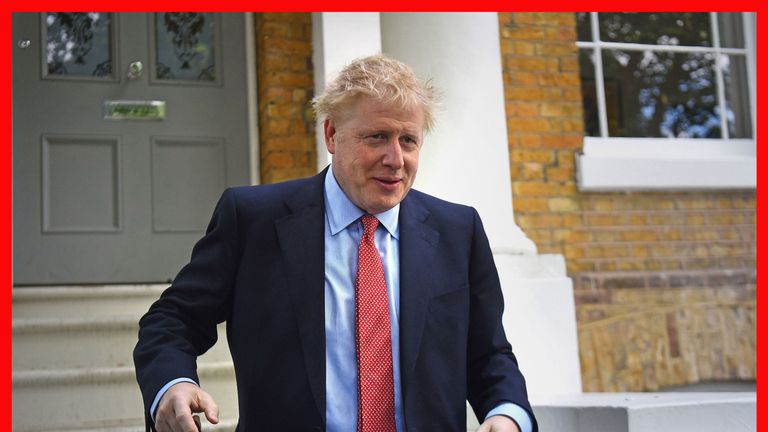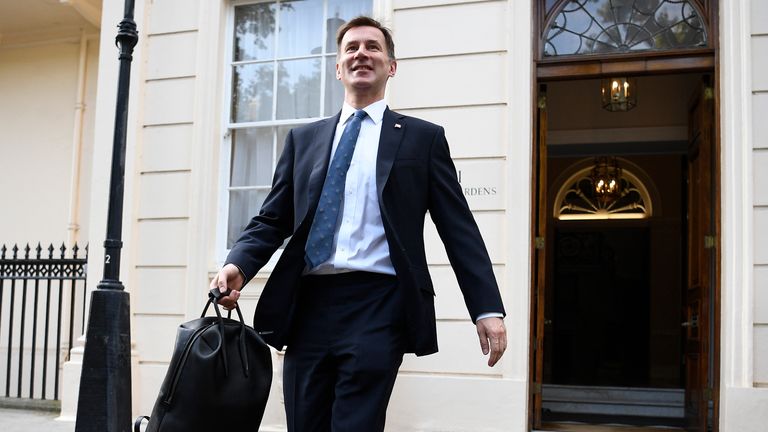Boris Johnson’s income tax cut would mainly benefit high earners, IFS says
Boris Johnson’s plan to cut income tax for those earning more than £50,000 would cost around £9bn and mainly benefit the top 10% of earners, a respected economic think-tank has said.
The Institute for Fiscal Studies has looked into the Tory leadership frontrunner’s headline-grabbing pledge, which has been criticised by opposition parties and fellow contenders for Downing Street.
In its analysis, the IFS said it was “not clear” that spending so much on tax cuts would be compatible with both ending austerity and ensuring the “prudent management” of the nation’s finances.
Amid criticism of the policy, Mr Johnson has rowed back slightly, saying he wants a “debate” about raising the threshold at which people begin paying 40% tax from its current level of £50,000 to £80,000.
He has defended his tax policies, describing them as “sensible”.
“It does seem to be very odd that in the Conservative Party people should seriously question whether it is right to try to lift nurses and heads of maths departments and police inspectors out of the top rate of tax,” Mr Johnson said in a BBC debate earlier this month.
“What we would bring forward is a package to help, primarily, the poorest in society by lifting the thresholds for National Insurance but I think it’s very sensible to have an ambition to raise the higher rate of tax for middle-income earners.”
According to the IFS, around 3.2 million workers would gain from the policy, along with 400,000 pensioners.
The vast majority of the gains, around three-quarters, would be enjoyed by the top 10% of earners.
While the IFS said that only around 8% of individuals would benefit in the short-term, over time a “considerably larger” number would benefit at some point in their lives.
This would either be directly through increases in their own salary or because they are in a household with a higher earner, due to income variations over the span of a working career.
Along with reform of income tax, Mr Johnson has suggested increasing the amount people can earn without paying National Insurance contributions (NICs) to give the lower paid a tax cut.
He has not said how much he would want to increase the threshold by.
At the moment, earnings over £8,632 are subject to NICs.
The IFS said raising the threshold by £1,000 would remove 600,000 from paying NICs and cost around £3bn annually.
IFS research economist Tom Waters, one of the authors of the analysis, said: “These are expensive pledges to cut tax.
“Raising the higher rate threshold as far as £80,000 would be a radical change benefiting high-income households only, though it is important to be aware that the numbers paying higher rate tax have crept up over time, largely unannounced.
“There are now more than four million higher-rate taxpayers compared with 1.5 million 30 years ago.
“Raising the floor for NICs helps low earners, though raising tax credits would be much more effective and better targeted if that were the key aim.
“These pledges between them will cost many billions of pounds.
“It is not clear that spending such sums on tax cuts is compatible with both ending austerity in public spending and prudent management of the public finances.”
A spokeswoman for Mr Johnson said: “Boris has, throughout his career, been a champion of helping the lowest paid – as mayor he rolled out the London Living Wage, benefiting tens of thousands of Londoners.
“If he is elected leader and prime minister, Boris will continue to focus on reducing the tax burden for working families.”
Meanwhile, Mr Johnson’s challenger for the Tory crown – Foreign Secretary Jeremy Hunt – has pledged to commit £15bn to boosting Britain’s defence and security.
Mr Hunt said the cash – which would see defence spending rise from 2% to 2.5% of GDP – would show the world that Britain is a “self-confident country ready to defend its interests and values as we embark on an exciting post-Brexit future”.
“Everyone knows Britain is a world leading soft power, but to be credible we need to show that we are determined to remain a first rank military power,” he said.
“My plan for defence will give our brave troops the backing they need and show the world that when it comes to the new threats to Western values, Britain is back and Britain’s voice will be strong.”
Mr Hunt said the money would be used to:
:: Increase Britain’s presence in the North Atlantic amid Russian submarine activity;
:: Buy new equipment for British troops;
:: Improve Britain’s ability to fight damaging cyber attacks;
:: Increase the Royal Navy’s presence in the Indo-Pacific region;
:: Upgrade the number of “high-readiness forces” which can be “rapidly deployed to defend British interests”.
Source: Read Full Article




